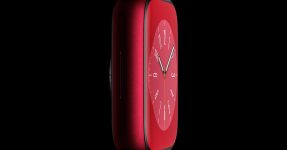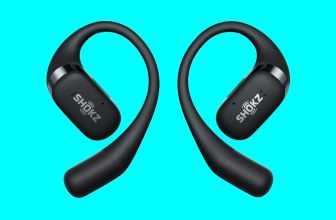
The Unintended Consequences of Apple’s Fertility Tech
Here’s the way it works: The watch should be worn in a single day to measure physique temperature each 5 seconds, in keeping with the corporate. Body temperature drops barely proper earlier than ovulation and rises throughout it. The watch’s algorithm measures these shifts and may notify an individual a number of days after they could have ovulated.
But Apple’s Health app, accessible on older Apple Watch fashions and iPhones, has already provided cycle monitoring and fertility predictions, the place customers enter their menstrual cycles and bodily signs. The app may give predictions, not simply retroactive estimates, on the times folks could also be fertile. (Apple additionally says this function shouldn’t be used as a kind of contraception). Predictions made utilizing these varieties of evaluation are much like what’s generally known as the rhythm technique, which has lengthy been used to stop being pregnant. It has a excessive failure charge when in comparison with hormonal and barrier varieties of contraception, in keeping with the American College of Obstetricians and Gynecologists.
And whereas period-tracking apps have existed for a minimum of a decade, cell apps with algorithms that use temperature information to foretell ovulation are newer. Natural Cycles is cleared to promote itself as contraception by the US Food and Drug Administration and in Europe, however Daysy isn’t. Another app, Clue Birth Control, additionally acquired FDA clearance.
Despite completely different ranges of regulatory approval, all these apps and companies are completely different varieties of the catchall phrase “fertility awareness method,” which consists of monitoring a menstrual cycle and generally utilizing physiological indicators, like temperature, to foretell ovulation. People can then have unprotected intercourse based mostly on that mapping, whether or not they’re planning a being pregnant or attempting to keep away from one.
Even if apps warning towards utilizing their algorithmic predictions for contraception, “the reality is that people do,” says Rebecca G. Simmons, a fertility researcher with the University of Utah who beforehand labored on Clue’s app. “A lot of people backfill: ‘If this can be used in one way, then it can be used in another way,’” she says. “There’s not enough body and health literacy in our population to really understand that that’s not true. It’s a problem across fertility tech, but Apple is just the largest and most visible.”
Simmons additionally says that integrations like those Apple has in its new watch might start exhibiting up extra. “I think it’s going to be more and more common that people get a side of femtech with their normal tech,” she says. That’s good for inclusivity, however may very well be dangerous for public understanding of how the know-how works.
The silver lining is that placing ovulation trackers on extra wrists—from Apple and others like Fitbit—might present extra information about how folks use fertility tech and the way effectively fertility consciousness works. However, this development coincides with new issues round collecting fertility information. The US Supreme Court’s ruling overturning Roe v. Wade in June has led states to criminalize abortion, and legislation enforcement has used folks’s search histories and texts about looking for abortions as proof to prosecute them in some circumstances. Any cycle-tracking tech, significantly an app that factors to modifications in ovulation, has the potential to be weaponized towards somebody accused of illegally terminating a being pregnant.
Apple says that each one well being information is encrypted finish to finish for individuals who use two-factor authentication in iCloud and that information on a tool is encrypted and could be accessed solely with a password. That’s an enchancment on different period- and fertility-tracking apps, some of which have tracked information that might put customers in danger. But privateness specialists have issues that these protections will not be absolute.
“It’s convenient to have these types of apps,” says Jennifer Chin, a fellow with the American College of Obstetricians and Gynecologists. “But I just want everyone who is using it to know the potential drawbacks of using natural family planning, and also that there is national concern for people’s privacy.”






